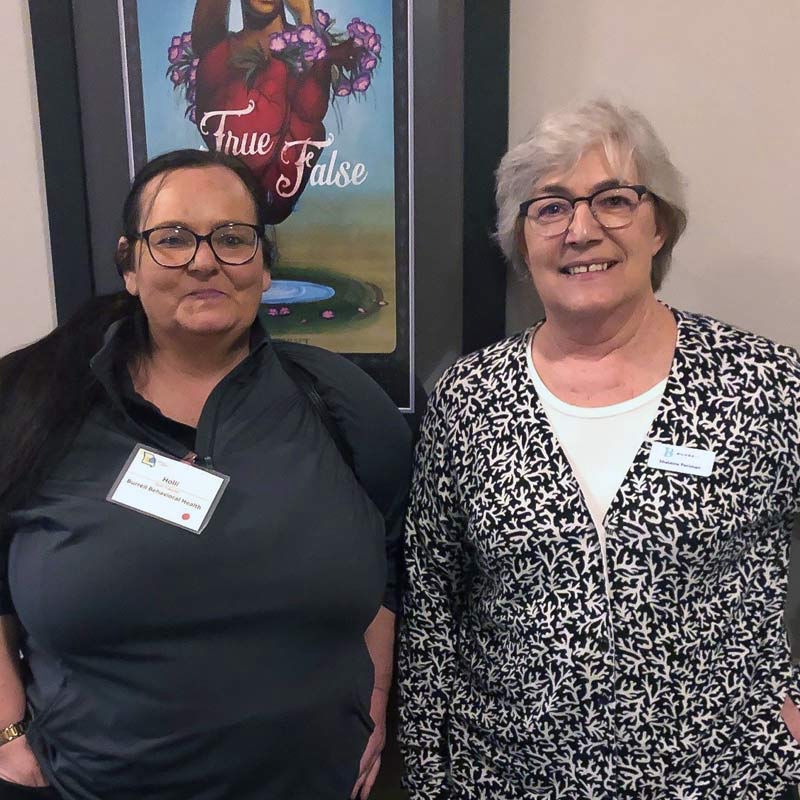

When the Foundation launched the Diverting to Care initiative, we wanted to center a new approach to community safety and wellness. Currently, in some communities, law enforcement is responsible for responding to calls of community concern, like when someone is having suicidal thoughts, for example. In fact, police are reporting that they are overwhelmed with the number of calls they receive related to mental health and substance use issues, citing the amount of time spent on these calls has increased over time. This means police aren’t able to focus on addressing crime, and people who need help are slipping through the cracks. Because the current system isn’t working for anyone, we set out to partner with communities that are developing police alternatives to crisis response.
Through the Community Partnership of the Ozarks in Springfield, Burrell Behavioral Health had been regularly meeting with law enforcement, service providers, the Springfield-Greene County Health Department, Springfield-Greene County 911, and hospitals to find a solution that ensures everyone can get connected to the services they need.
“This work evolved from our conversations with law enforcement asking for more support and communities wanting more support for people experiencing behavioral health issues,” shared Shalaine Periman, Director of Crisis Services at Burrell Behavioral Health.
After gathering input and researching different ideas, the organizations agreed to implement a co-responding model. With this method, the officer is cleared from the scene as quickly as possible, and the mobile crisis response unit begins working with the person in crisis. The planning for the program started a year ago with the official launch last September. Since then, the first six months have seen a 200% uptick in calls with positive feedback from officers and providers.
So how exactly does it work? When an officer responds to a crisis situation, they contact the mobile unit, share the individual’s information, and within minutes, help arrives. Staff from Burrell Behavioral Health work with the person to develop a plan of what to do next. If help is refused, a follow-up plan is created so the person has options when they want them. The follow-up program is a core component of the outreach efforts and has been successful in getting those who are initially reluctant into care. After the person has been helped, there is an after-action review where those involved can reflect on what went well and talk about what could have been done better.
Though the program has had early wins, the Burrell Behavioral Health team is continuing to work on communication and trust-building with police officers to ensure the sustainability of the initial success.
“Trust-building is needed to lay the foundation in each community, and as the trust grows, officers are more open about saying what they need from us,” said Holli Triboulet, Project Director at Burrell Behavioral Health and former officer with the Branson Police Department. “Police are sometimes apologetic for calling for help, but when we’re able to help diffuse the situation and identify long-term needs, they really get behind that.”

Holli Triboulet, Project Director at Burrell Behavioral Health and Shalaine Periman, Director of Crisis Services at Burrell Behavioral Health
Training has been another essential part of the program. Topics cover a range of areas including officer wellness, safety procedures, how to write affidavits, and how to get people care at the Behavioral Crisis Center, among others. Next, they are focused on how to handle repeat 911 callers and are also looking at housing 988 crisis counselors alongside 911 dispatchers.
With the growing momentum around communities beginning to redefine their approach to public safety, other efforts across Missouri have also begun investing in innovative strategies. We’re currently working with a few of them. We are also expanding our partnerships over the next year with five rural communities looking to explore alternative responses to law enforcement and toward connection to substance use prevention and treatment services and compassionate mental health supports for people experiencing behavioral health crises. We’re excited to see this work unfold and share back the successes from these collaborations.
If you have any questions or are interested in learning more about our Diverting to Care work, please contact Katie Kaufmann, Senior Strategist, at kkaufmann@mffh.org.